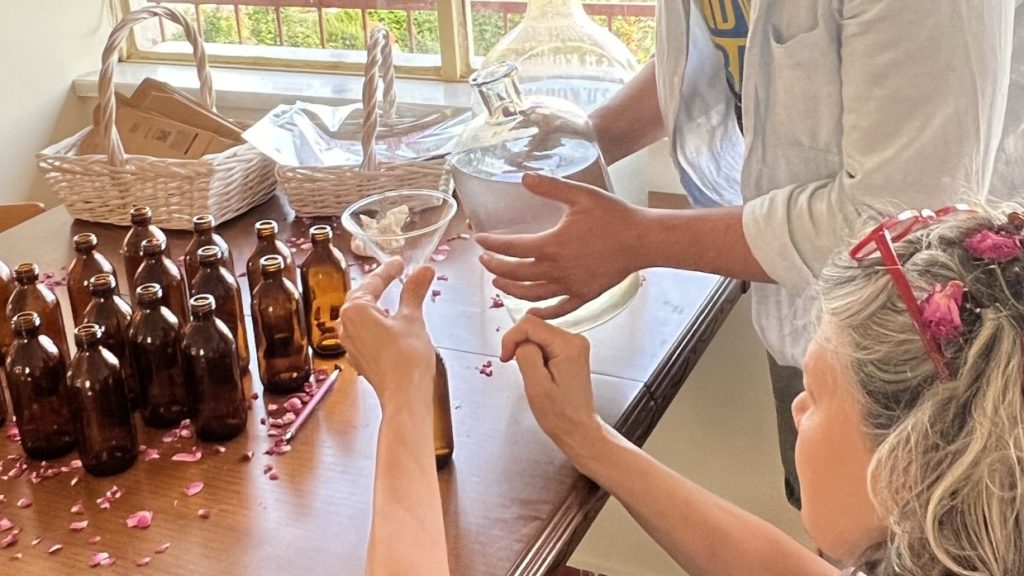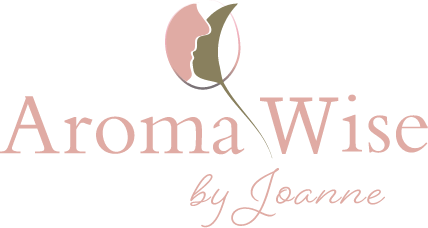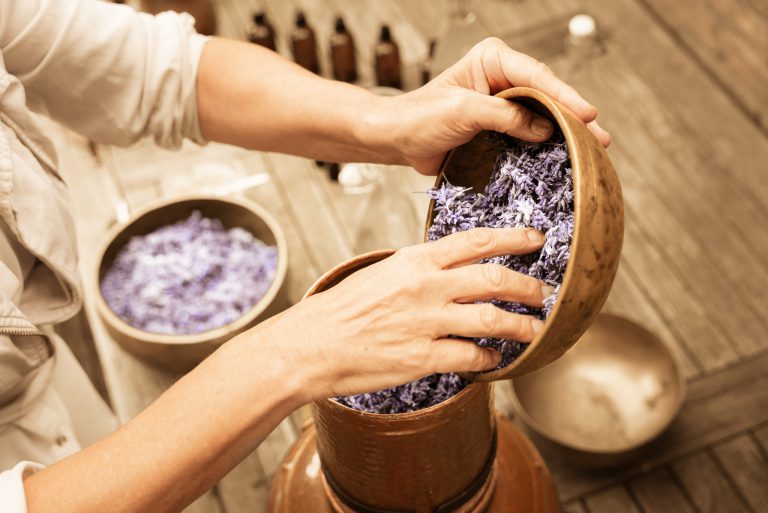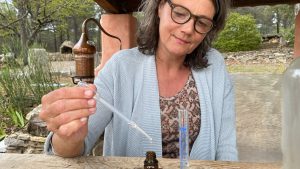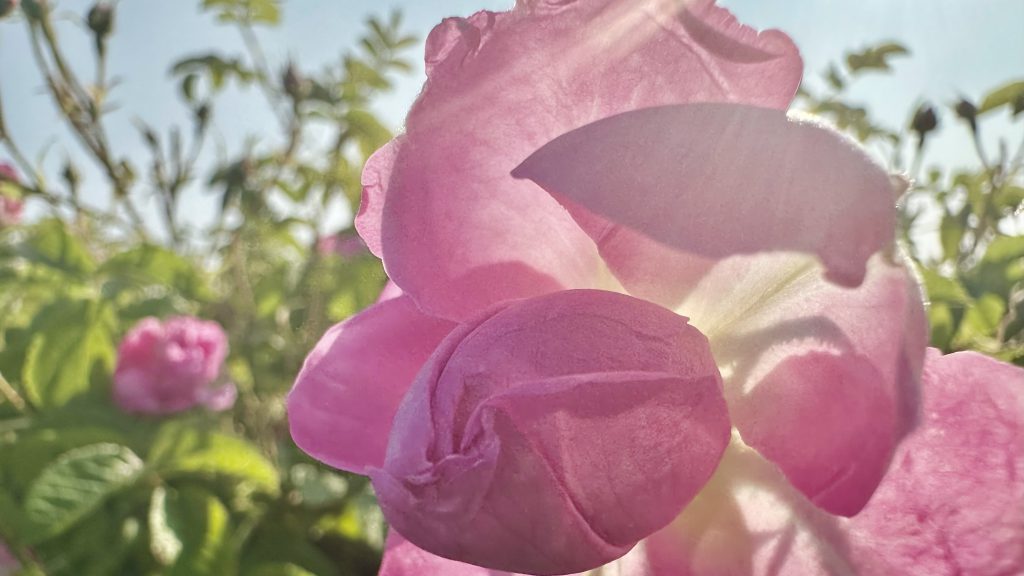
Rose hydrosol, also known as rose water, is much more than a fragrant refreshment. From the moment you use it, it feels like morning dew gently settling on your skin — invigorating, purifying and delicate. This floral water, distilled from Rosa damascena, has been used for centuries in skincare, rituals and well-being.
But what exactly is rose water? Why is it so much more than just a fragrant liquid in a bottle? And how can you tell whether you're using a genuine, pure rose hydrosol — or a synthetic version with no active properties at all? I’ll take you through all of that in this article: what to look for when it comes to quality, and of course, how you can start using it in your daily life.
What is rosehydrosol?
As a specialist in aromatherapy I’ve been working for years with high-quality rose hydrosol from Turkey — sourced directly from skilled distillers who truly understand their craft. The scent is refined, pure and vibrant. This rose water comes from the Isparta region, where thousands of hectares of Rosa damascena bloom each spring, hand harvest at sunrise.
Rose hydrosol is the fragrant floral water that remains after the steam distillation of Rosa damascena. These roses are hand pickedin the early morning, sometimes still kissed by dewdrops. Within hours of harvesting, the petals are placed in a copper still along with water. As the water is heated to around 95 degrees Celsius, steam is produced. This steam rises and carries with it both the volatile aromatic compounds and the water-soluble components of the rose.
As the fragrant steam cools, it condenses back into liquid form. This results in two distinct layers: a thin, oily film on top — the essential oil, which is lighter than water — and beneath it, the clear floral water known as rose hydrosol.
This hydrosol contains traces of essential oil as well as water-soluble compounds that are not found in the oil. This rose water is a gentle and safe natural product, widely used for skincare, wound care, and emotional well-being.
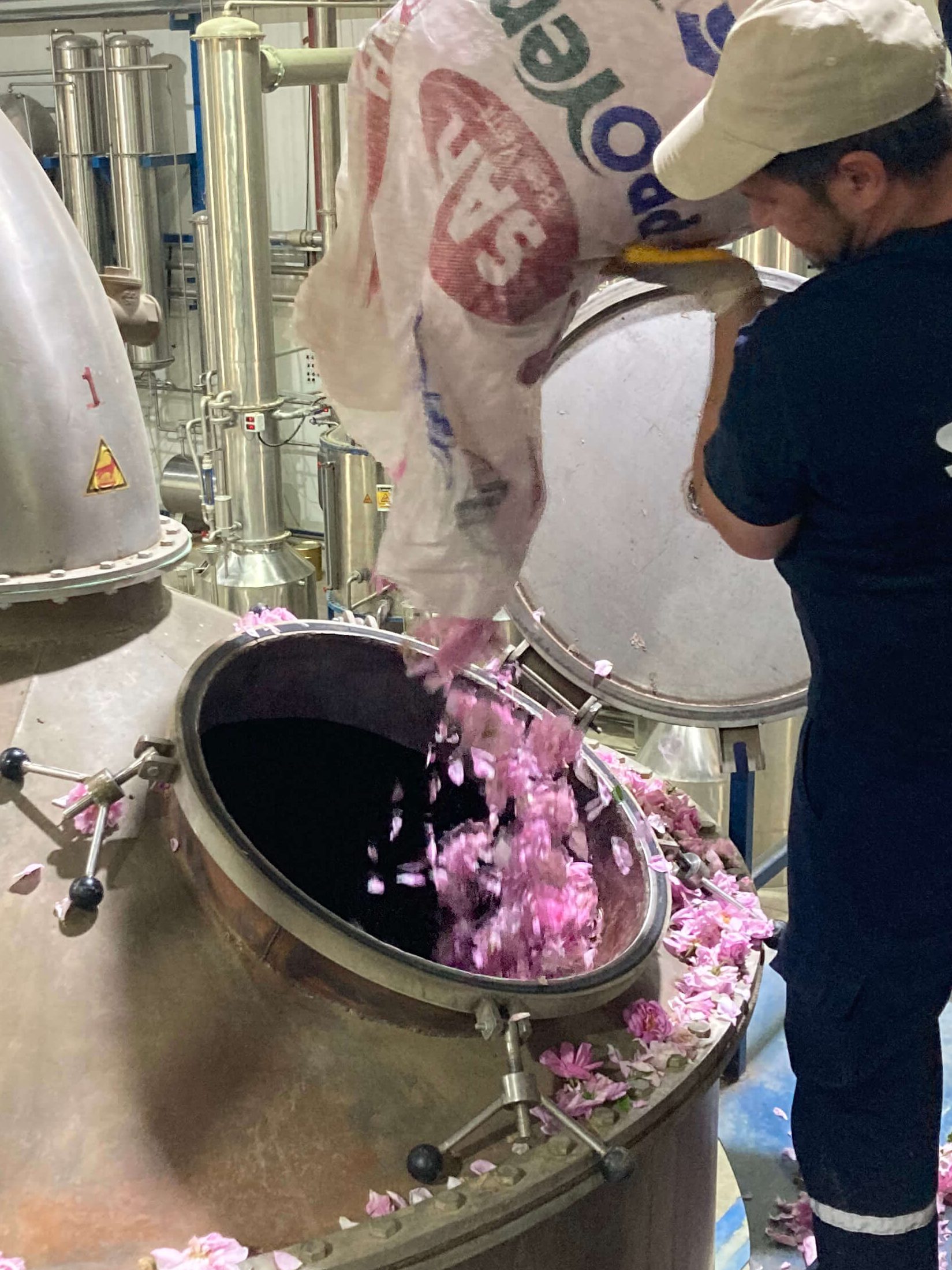
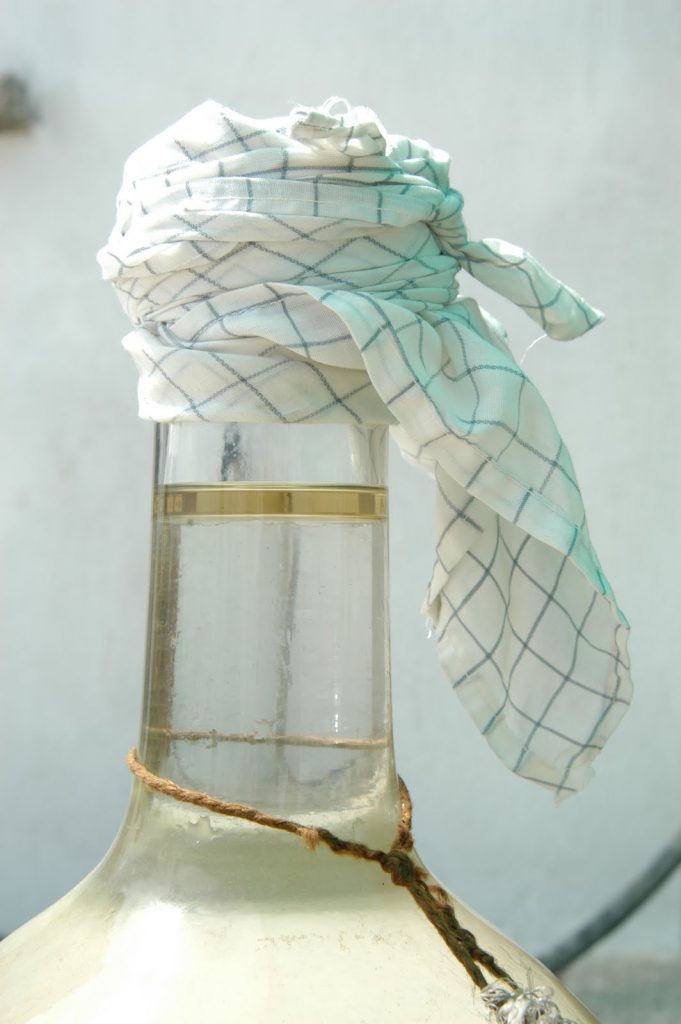
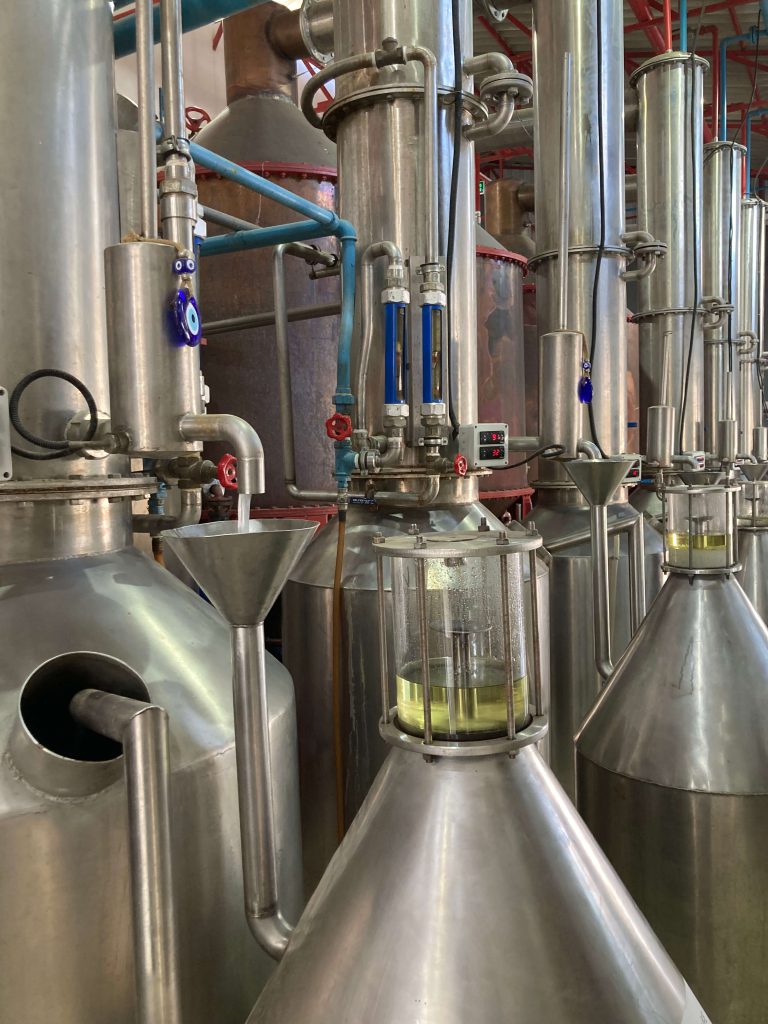
Why pure rose hydrosol does so much for your skin
What makes rose hydrosol unique is its special composition of plant compounds formed during steam distillation. One of these substances is phenylethanol, a natural aromatic alcohol with a gentle, floral scent.
This compound not only gives rose hydrosol its distinctive rose scent but also offers nurturing properties such as:
- Antimicrobe: helps inhibit unwanted bacteria and fungi
- Calming: soothes skin irritation and promotes relaxation
- Antioxidant: protects the skin against free radicals
- Soothing & hydrating: leaves the skin soft and smooth
These active compounds are found exclusively in pure rose hydrosol, which is obtained through steam distillation of fresh rose petals. They are completely absent in synthetic rose water, perfumed waters, or diluted oil-based solutions.
Your skin feels the difference, your nose smells the difference, your heart feels the difference.
Rose hydrosol – rooted in tradition, rich in power
Rose hydrosol has been used in Turkey for generations as a natural remedy in skincare, nourishment, and ritual practices. While working there, I had countless conversations with women and distillers who warmly shared their knowledge and experiences. They explained how mothers use rose hydrosol to help lower fever in sick children—either by applying a compress to the forehead or by adding a splash to a lukewarm bath.
They also use it as a natural wash for inflammations of the eyes or mouth, providing a cooling, purifying, and healing effect. Additionally, rose hydrosol is regarded as a precious beauty elixir—a luxury accessible to everyone. The women spoke with pride about the fresh radiance it gives their skin, the gentle glow, and the feeling of renewal.
Many even take a small half teacup of rose hydrosol (served in a traditional Turkish tea glass). Some drink it pure, others diluted with water. This practice is believed to help cleanse the liver, balance cholesterol, and support the digestive system. Naturally, this can only be done with 100% pure, natural hydrosol, straight from the distillation.
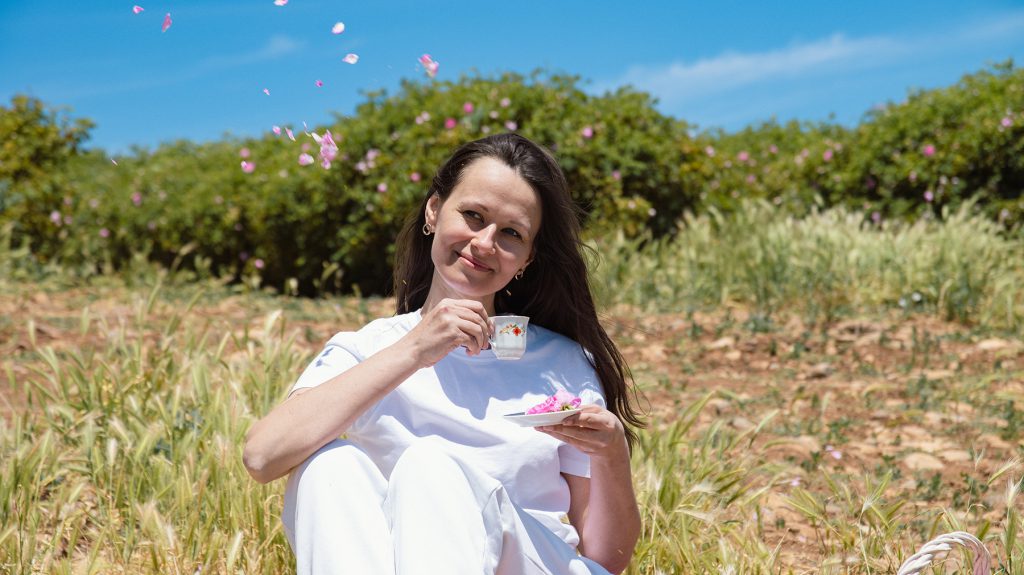
Modern research now confirms what they have long known: that consuming pure rose hydrosol can support liver function and may have a cholesterol-lowering effect.
And then there’s the kitchen. In traditional dishes such as güllaç (a delicate dessert made with paper-thin pastry layers) and lokum (Turkish delight), a small amount of rose hydrosol is added—also in Turkish coffee. It imparts a unique floral flavour unlike anything else you’ll find.
Inspiration for using rose hydrosol
I use rose hydrosol myself almost daily, and I’d love to inspire you with different ways to use it. Beyond being a fragrant treat for your senses, it’s also a versatile, natural care product that can be applied in countless ways. The inspiration I’m sharing comes from both traditional uses and new discoveries—drawn from research, my students, and my own experiences. All personal, yet supported by scientific insights. Let yourself be inspired and enjoy.
Daily skincare with rose hydrosol
Face toner
Spray rose hydrosol onto cleansed skin twice daily and allow it to dry naturally. Your skin will develop a gentle glow, pores will appear refined, and fine lines may diminish. Scars can also become visibly softened.
Refreshing mist
Mist your face, neck, or entire body on warm days for instant freshness and hydration.
Sunburning
Rose hydrosol helps soothe red, sensitive skin and supports recovery after sun exposure.
Eye compresses
Soak cotton pads or eye pads with rose hydrosol, place them over closed eyes, and rest for 15 minutes. Perfect for tired, dry, or irritated eyes.
Inflammations or minor wounds
Make a compress with rose hydrosol and apply it to skin irritations, insect bites, or abrasions. Soothing and antibacterial.
Make-up remover
Mix some rose hydrosol with a few drops of almond oil on a cotton pad and gently yet effectively cleanse your face.
Rose mask
Mix 2 tablespoons of rose hydrosol, 1 tablespoon of yoghurt, and 1 tablespoon of honey to create a mask. Apply it, leave on for 10 minutes, then rinse off with lukewarm water or rose water.
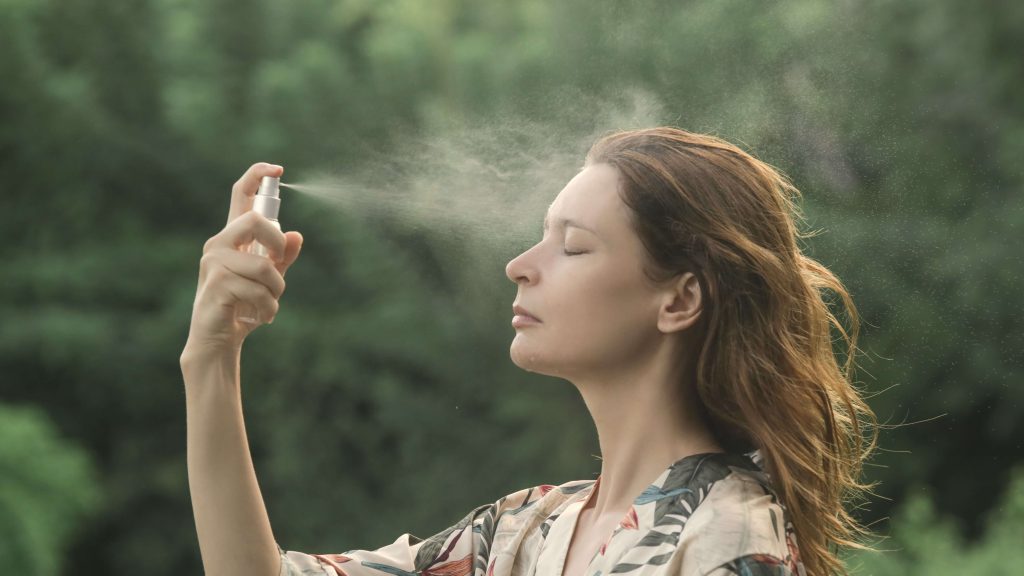
Self-care rituals with rose hydrosol
In the bath
Add 5 tablespoons of rose hydrosol to your bathwater for a soothing moment of relaxation. For babies or children, 1 tablespoon is enough—especially helpful for eczema, colic, or restlessness.
Facial steam bath
Add a splash of rose hydrosol to hot water and let your face enjoy a purifying steam session. Beneficial for your pores—and your senses.
After a clay mask
Use rose hydrosol to refresh your skin after removing a mask.
For shiny hair
Spray rose hydrosol onto dry or towel-dried hair. It enhances your natural curl and adds a radiant shine.
Inner care
Inner cleansing
Take 1 to 2 tablespoons of rose hydrosol daily in a glass of lukewarm water. This supports your liver and promotes harmony and relaxation.
Culinary uses
Replace water in cakes or desserts with rose hydrosol for a subtle floral flavour.
Add a teaspoon to your coffee for a delightful Eastern twist.
A splash in your herbal tea or salad adds a fragrant, refined touch.
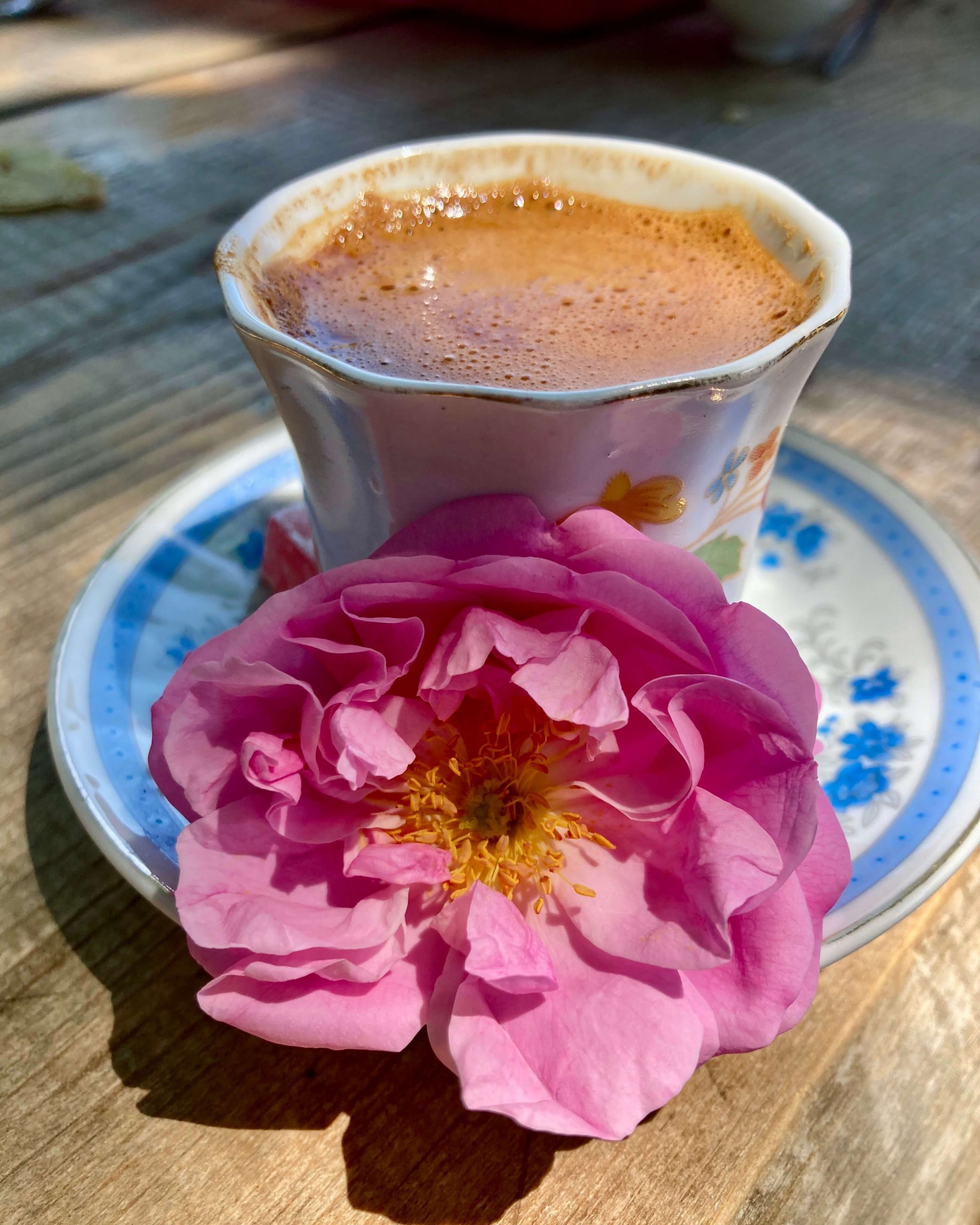
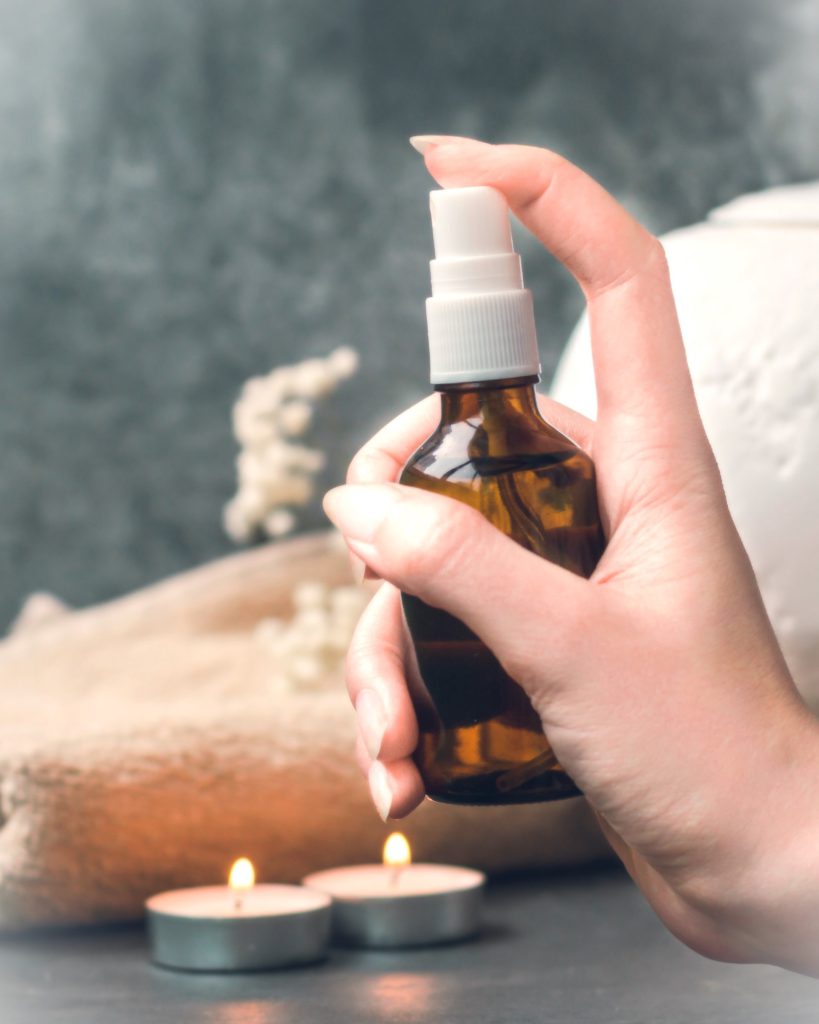
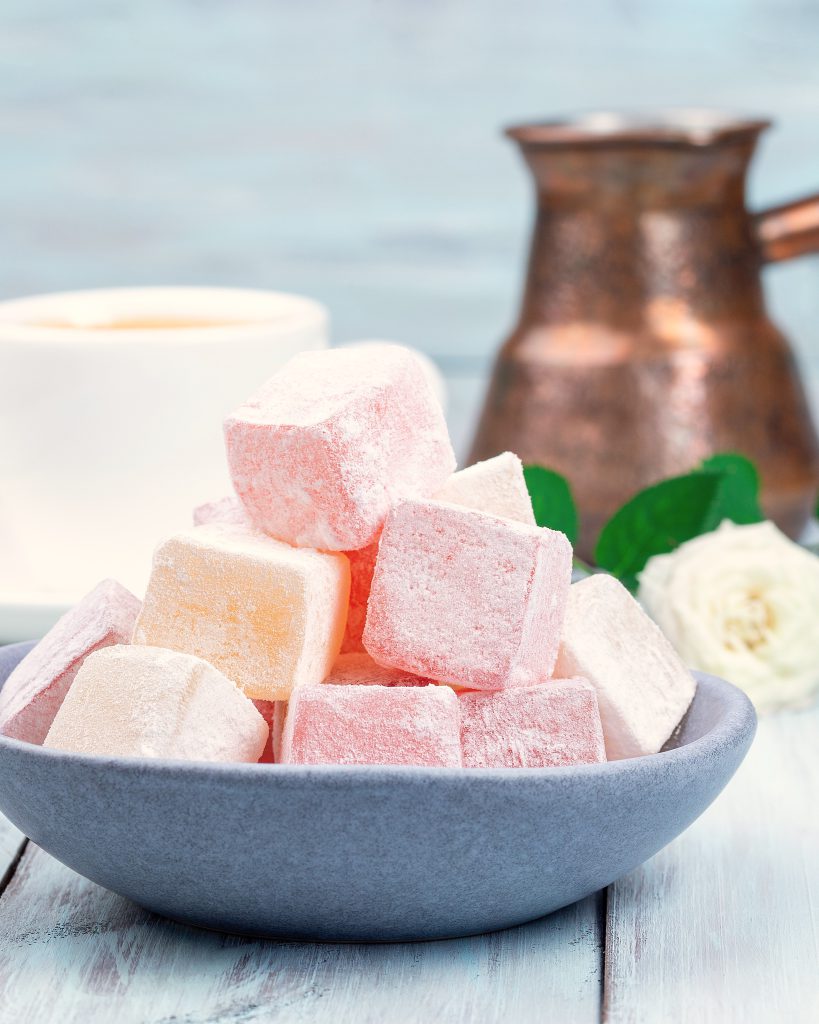
For fragrance, ambiance, and energy
Refreshing linens and pillows
Spray some rose hydrosol over your bedding. You’ll sleep like a rose—fresh, soft, and relaxed.
Energy & calm in the space
Spray some rose hydrosol over your bedding. You’ll sleep like a rose—fresh, soft, and relaxed.
Or mist it around you for a special fragrant experience, giving yourself a moment of cleansing and renewal.
How to recognize the real pure quality of rose hydrosol
Not every rose water you purchase is a pure rose hydrosol. If you want to be sure you are using a natural, authentic product, pay attention to the following:
- Ingredients list: er mag alleen Rosa Damascena flower water should be listed, with no additives.
- OriginPreferably from a region known for traditional distillation, such as Isparta.
- Scent: subtle, gently floral, and not overpowering or artificial.
- Packaging: ideally in dark glass or a UV-protective bottle with an expiry date (maximum 12 months). Even better if the production date is also indicated
- Povenance information: reliable suppliers provide transparency about origin and the production process.
Watch out for terms like “fragrance water,” “perfume water,” or rose water with added alcohol or synthetic fragrances – these are not hydrosols. The label should clearly state: 100% pure hydrosol obtained through a distillation process.
Experience it yourself
I work with small quantities of rose hydrosol, sourced directly from Turkey – pure, artisanal, and crafted with care. Occasionally, I have a limited supply for those seeking something truly special.
If you want to discover what rose hydrosol or other natural fragrances from Mother Nature can bring to your life – at home, in your practice, or during rituals – take a look at my workshops, Study tours or fragrant experience,. Feel free to contact for more information
With love, Joanne
Joanne
